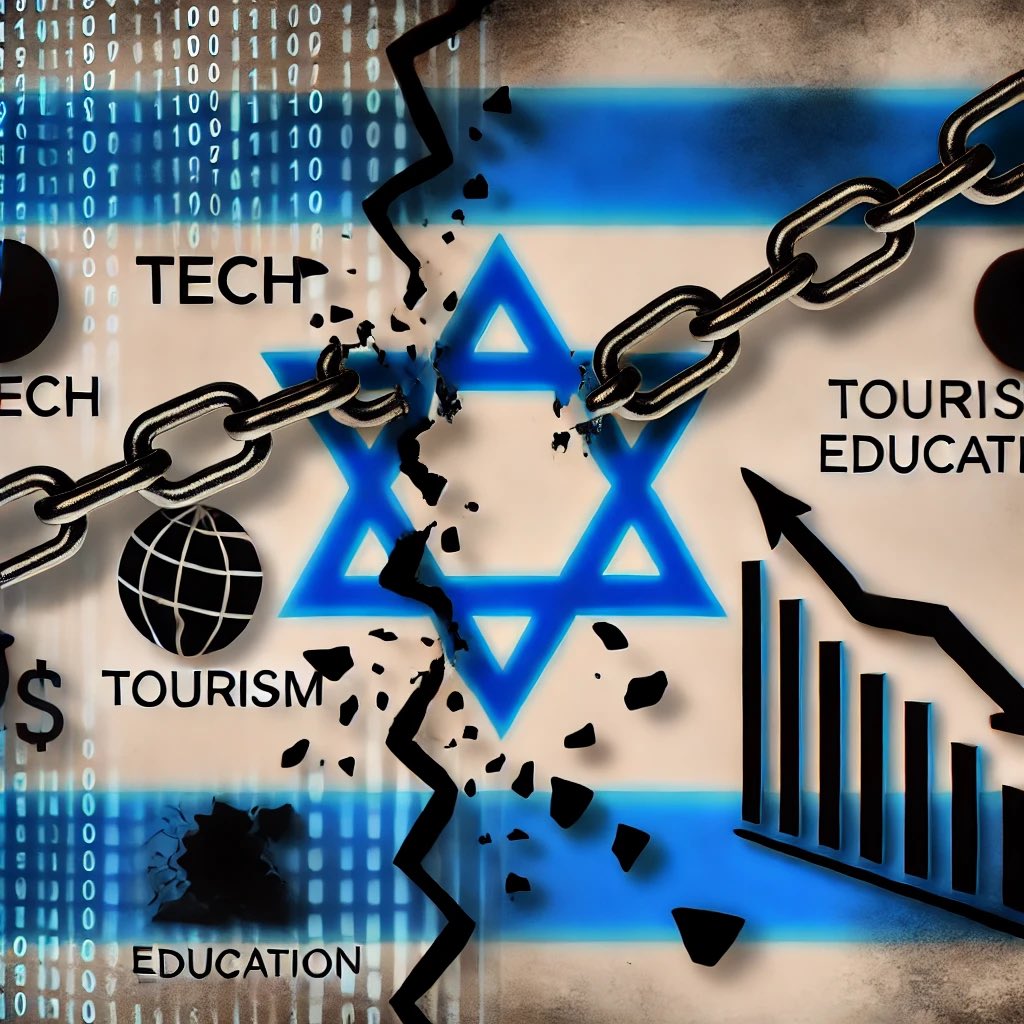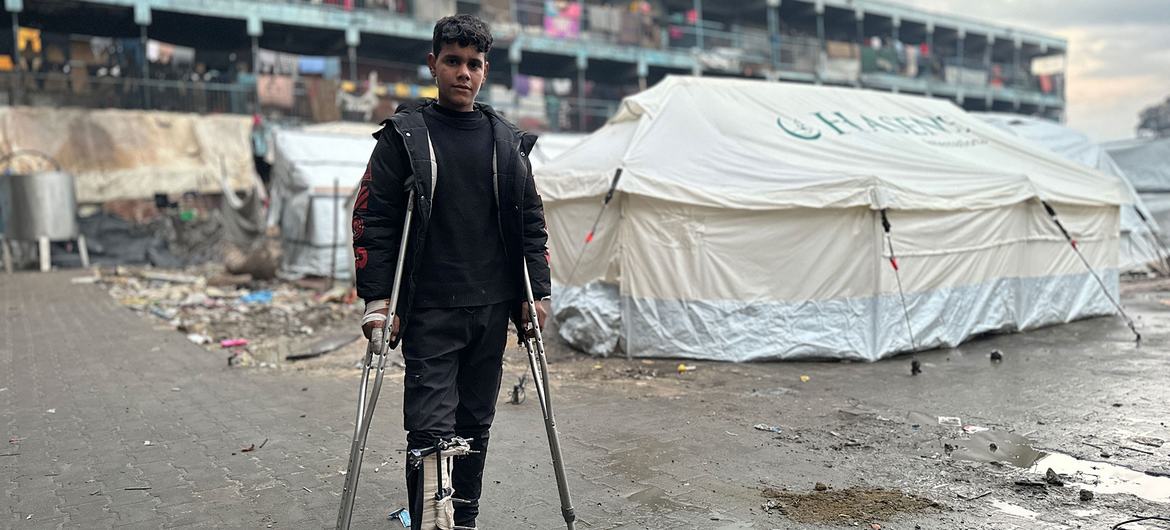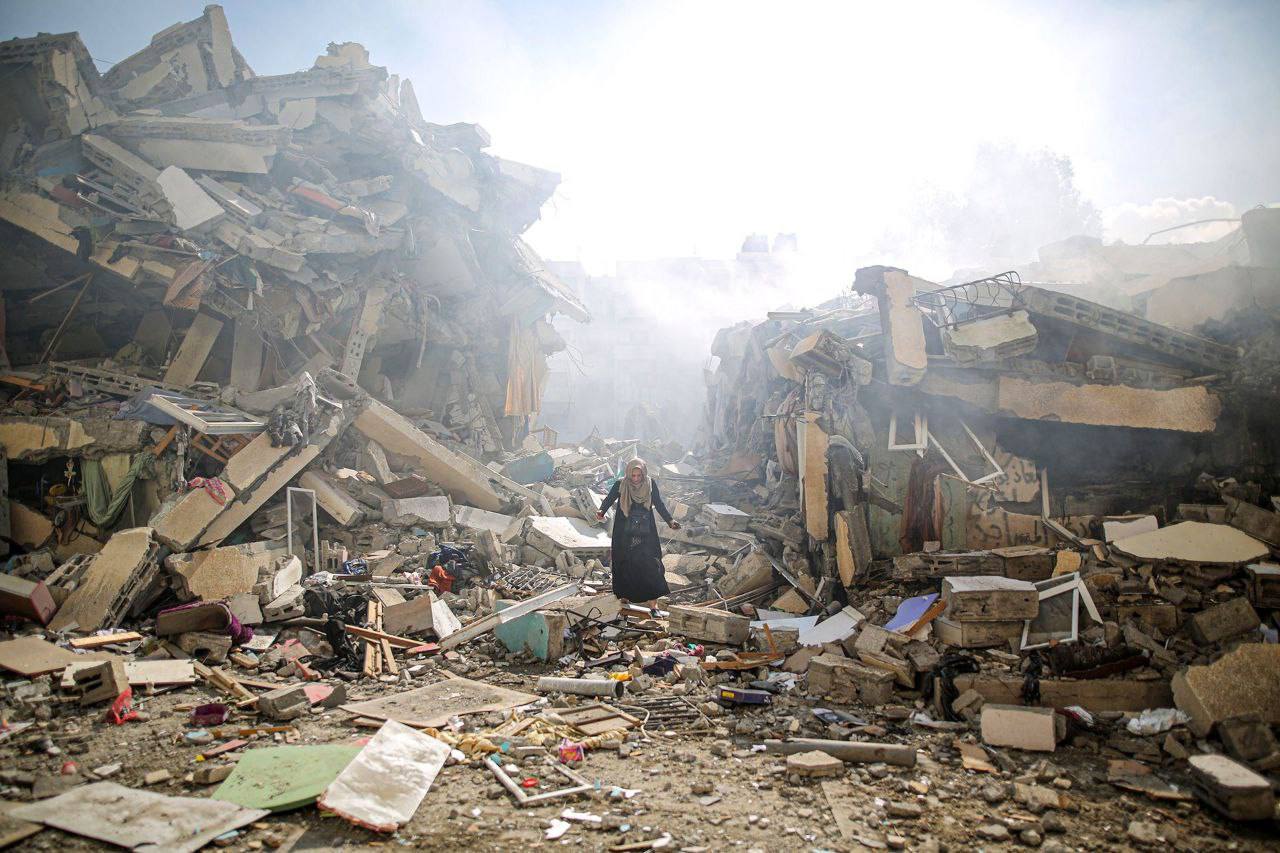
As Israel’s genocidal war casts a dark shadow over the region and world, experts warn the billions spent to decimate Gaza and Palestinians could prove a cost too high for its own economy.
There are little to no signs of recovery, according to an Israeli economic researcher, with weak indicators, declining foreign investments and tourism, along with an alarming exodus of citizens, painting a bleak picture for Israel’s future.
“The economic crisis will only get worse and worse. There is no prospective for recovery,” Israeli political economist Shir Hever warned in an interview with Anadolu.
His words echoed a recent assessment by Yoel Naveh, a former chief economist at the Israeli Finance Ministry, who said the government has to act “vigorously and with immediate action to … stave off the risk of a looming financial crisis.”
The current trajectory, he added, could “drag its war-battered economy into a recession and endanger the country’s national security.”
The economic cost of Israel’s deadly assault on Gaza, where it has killed and injured nearly 140,000 Palestinians since Hamas’ cross-border attack last October, is believed to be somewhere over $67 billion, according to an August estimate by Israeli economists.
The Bank of Israel said in May that the war costs would spike to about 250 billion shekels ($66 billion) through the end of next year.
The Israeli economy, on the other hand, grew by just 0.7% in the second quarter of 2024, significantly below the 3% forecast of Tel Aviv Stock Exchange analysts.
By August, the budget deficit to GDP ratio was at minus 8.3%, increasing from minus 7.6% in June, minus 6.2% in March, and minus 4.1% last December.
In August alone, the budget deficit was at 12.1 billion shekels ($3.22 billion).
“Prices are high. Standard of living is going down. There is inflation. There is a decline in the value of the Israeli currency,” said Hever.
Foreign investment has dried up, more than 85,000 people have dropped out from the workforce, and there are “a quarter million people who have been displaced internally and lost both their jobs and their houses,” he added.
“And, of course, the very large number of people who are just leaving … The number of people who are leaving is unprecedented, really, in the history of Israel,” he said.
“You see people just buying a one-way ticket to see what will happen. When you see so many people are doing this just to protect their families, the result is that those who stay are feeling that the state is in a process of collapse.”
Economic indicators are “not the full story,” he emphasized.
“The full story is what is the perspective of the population regarding the future. People who don’t believe that there is a future. People who don’t believe that the state of Israel will ever be able to recover from this crisis,” he said.
“They don’t invest. They don’t want to raise their children in Israel. They don’t want to look for a job or study. This means that the economic crisis will only get worse and worse. There is no prospective for recovery.”
Israelis are pulling out their savings to take them out of the country and the government has responded by threatening to take “your pension funds and investing them in the economy,” he said.
Constant state of emergency
Regarding the domestic financial situation, the economist said more than 46,000 businesses have gone bankrupt, while even larger entities are also feeling the financial heat.
“The port of Eilat has gone bankrupt as well, which is the only port that Israel has on the Red Sea,” said Hever.
“Tourism is at zero. There is no tourism … Overall, international investment in Israel has gone almost to nothing.”
A major concern, Hever said, is the Israeli high-tech sector, which used to be “the most important part of the Israeli economy.”
“These high-tech companies are using all of the resources to try to relocate. They’re very much concerned that they cannot function in Israel under the current conditions,” he said.
“They don’t trust that the workers will not be sent to fight in a war. They don’t trust that the areas are safe. They don’t trust that the economy is stable. They don’t trust the government not to intervene and confiscate their property.”
These firms are now “trying to get themselves to be sold outside,” he said, citing the example of Israeli cybersecurity company Wiz, which was aiming for a $23 billion Google acquisition that drew major media attention in the country.
“But, of course, Google cancelled this deal. They never bought … They don’t want to make such an investment.”
International law and sanctions
The Israeli economy, Hever said, is working in a constant state of emergency, which is the only thing preventing a complete collapse.
“People want to have elections. They want to have a process of investigating all of the corruption and the cases,” he said.
“But as long as the military and security situation are so difficult and so much in a moment of emergency, all of this is postponed.”
Another hit to the Israeli economy has been due to the global Boycott, Divestment and Sanctions (BDS) movement, which Hever views as never having been “so large, so powerful.”
Israel, he said, is around the third and last stage of sanctions.
“When governments say they cannot continue to trade with a state that is committing crimes against humanity … then you really know that that it’s the last stage,” he said.
“The Israeli economy is very dependent on international trade and on international agreements. Their biggest trading partner is the European Union.”
The concerns here, he explained, center around dual-use items that are “on the one hand necessary sometimes for the civilian economy to function, but they can also be made into weapons.”
The 19 July ruling of the International Court of Justice declared Israel’s occupation of Palestinian territories unlawful and “it is a war crime to assist occupation,” he said.
This means, he continued, Israel cannot import any materials for infrastructure unless they prove that they will not be used to make weapons or for any purpose to do with illegal Israeli settlements.
“There is an obligation on third states not to trade those items at all … If people think that it’s possible to have a functioning economic system in which dual-use items are banned … then this is an illusion,” said Hever.
“The Israeli economy will just collapse under the international sanctions until they recognize the demands of international law.”






